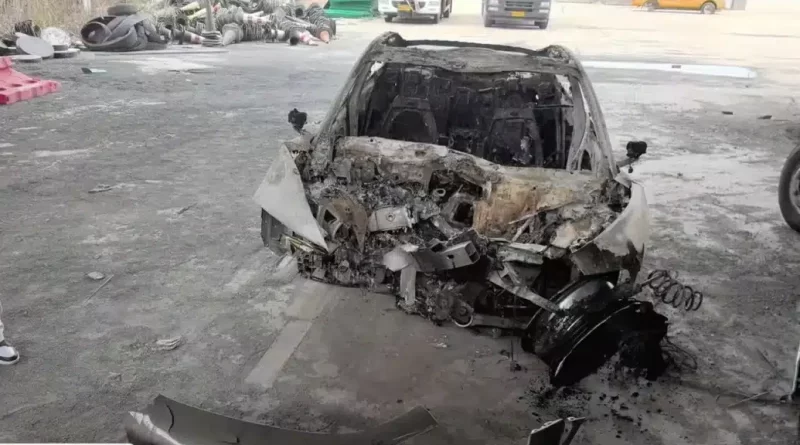No fires, no explosions! China raises bar for battery safety with strict new rules coming for 2026
In a bid to end battery fires, China’s Ministry of Industry and Information Technology (MIIT) has shocked car-makers with new rulings that go well beyond today’s safety standard’s governing the development of next-generation battery tech.
From July 1 2026, the MIIT regs governing the batteries specifically require producers to prevent fire and explosions caused by their power packs after internal thermal runaway occurs.
To improve safety, all batteries made in China from next year will be tested to ensure that batteries do not catch fire or explode even during thermal runaway.
READ MORE: Fire sale: Renault has patented an EV fire fix and it’s giving it away to other car makers!
READ MORE: ICE vehicles 80 times more likely to catch fire than electric cars
READ MORE: Are EVs more of a fire hazard than ICEs?
Previously, the regulations only demanded an onboard warning signal five minutes before the fire or explosion was about to occur – but now that is deemed insufficient.
Enhancing protection even further, power packs must undergo impact testing on the underside of the cells to assess the casing’s protection capabilities.
Every battery must also be able to withstand 300 DC fast-charging cycles without fire or explosion or any sign of short circuiting.
Industry experts say the new safety regulations go well beyond any mandatory testing currently in place globally and will lead to a significant boost in safety.
Responding to the changes, Chinese manufacturer CATL welcomed the standard but said it had already developed batteries that meet the new standards.
CATL first rolled out its No Thermal Propagation (NP) tech back in 2020.
“The new standard will effectively reduce the risk of power battery fires after collisions in new energy vehicles, better protecting consumers’ lives,” read the CATL statement.
The new stricter battery regulations follow a high-profile crash in China involving a Xiaomi SU7 (picture top courtesy Car New China) that saw three female university students burn to death following an impact in which the sports sedan caught fire.
While the investigation into the cause is still ongoing it’s thought legislators needed to act to alleviate public concerns over so-called spontaneous combustion risks in EVs.




